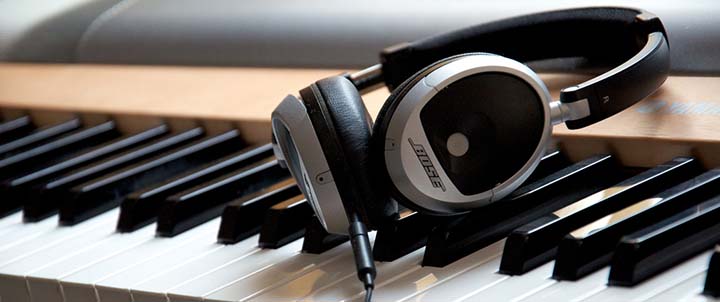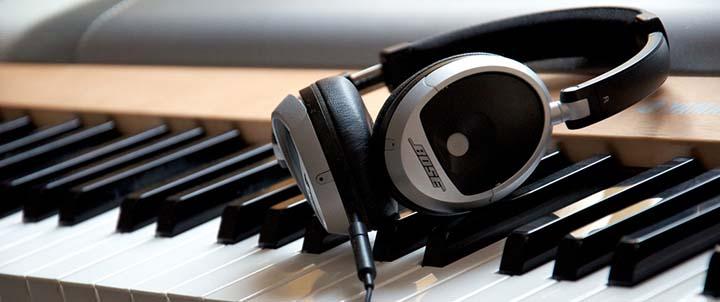 One of the most satisfying skills you can ever learn is mastering a musical instrument. Whether it’s a skill you pick up in school, or you’ve come to it later in life, the sense of achievement you’ll get from mastering anything from simple folk tunes to complex sonatas and studies by the great masters is almost without equal. The social element of music has been part of our society since civilization began, and without a doubt, music is the only truly international language, existing in every known culture on the planet.
One of the most satisfying skills you can ever learn is mastering a musical instrument. Whether it’s a skill you pick up in school, or you’ve come to it later in life, the sense of achievement you’ll get from mastering anything from simple folk tunes to complex sonatas and studies by the great masters is almost without equal. The social element of music has been part of our society since civilization began, and without a doubt, music is the only truly international language, existing in every known culture on the planet.
However, deciphering the dots, squiggles, and other seemingly meaningless symbols that make up that language can be the sticking point for many beginner instrumentalists, and particularly if you’re just starting to learn the piano. It can be tough to concentrate on not only reading two staves of musical notation at once, but using both your hands – and the right fingers! This is where learning piano by ear – or at least, understanding the basics – can actually come in handy.
Don’t Panic
As a total beginner, there’s a lot to learn. But before you start worrying, think of all the times you’ve listened to a particular song on the radio, and you suddenly realize that you know not just the melody but all the words by heart. Whether you realize it or not, that’s learning music by ear. Everyone can do it, and it’s a skill that anyone can master.
How Should I Practice?
You should still stick to the same five-finger exercises and scales that you would if you were fluent in reading music, as finger-strength and manual dexterity are the most important things to you in becoming more proficient as a pianist, whether you learn piano by ear or learn to read music alongside picking up basic skills. Where your practice will differ is in how you assimilate music.
What Practice Techniques Will Work for Me?
Everybody is different, and there is no one size fits all technique that will work for everyone. However, trying some or all of these in your routine may be useful:
-
Practice daily. This goes for every music student, of any age. You don’t need to sit at the piano for hours; even five minutes a day, every day, will make a significant difference.
-
Decide what you want from each practice session. It’s worthwhile having a goal for each practice session, especially if you learn piano by ear. It may be that you want to co-ordinate playing a five finger exercise in both hands at once, or you may wish to learn to pick out a simple eight bar melody, or if you’re a little more advanced, work out basic harmonies to a melody. You’re more likely to concentrate on your practice is you know what you want from it.
-
Listen to music. Listening to music can form as much of your practice as physically playing an instrument. Whatever genre of music appeals most to you, spend 15 minutes or so twice a week actively listening, and writing down on a piece of paper what you notice. For example, think about if the music happy/sad, fast/slow, which instruments are playing, and note anything unusual. Music students at college level do this kind of music analysis on a regular basis, and it is extremely useful.
Play along to the radio. Encourage yourself not to think of any musical decision you make as “wrong” – what you’re aiming for is fluency in the connection from ear to brain.
What Else Should I Focus On?
The most important thing you should focus on when you learn piano by ear is the connection between your listening skills and your playing skills. As with the “playing along to the radio” tip above, there are no wrong decisions when acquiring this fluency. Having said that, keep your ear keenly-tuned to notes that don’t work within harmonies and melodies, or that differ from the original version. Keep going back to your source material, and listen again.
Do People That Play by Ear Learn to Read Music?
Even though learning to play piano by ear can be helpful to musicians, learning to read music is something you won’t be able to avoid if you want to be a serious musician. For most, mastering the piano will include a balance of both approaches. Improving your musical ear will help as you learn music theory and need to quickly recognize intervals and chords, as well as analyzing the overall tone of a piece of music.
Additionally, being able to read music will help you along your career if you’re interested in joining a band, gigging, or even eventually teaching your own students. If someone – in an audition, for example – places a piece of music in front of you, it’s a huge advantage to be able to read it quickly and efficiently.
Where Do I Go From Here?
The most important thing you can do, whether you want to continue to play by ear or not, is to find a piano teacher. A good teacher can give you the one-on-one instruction needed to improve, and the feedback necessary to stay motivated and stay on track for reaching your goals!
Find the balance that works for you, and you’ll find the world of musical exploration opening up in front of you!
Photo by odolphie
Megan L.

